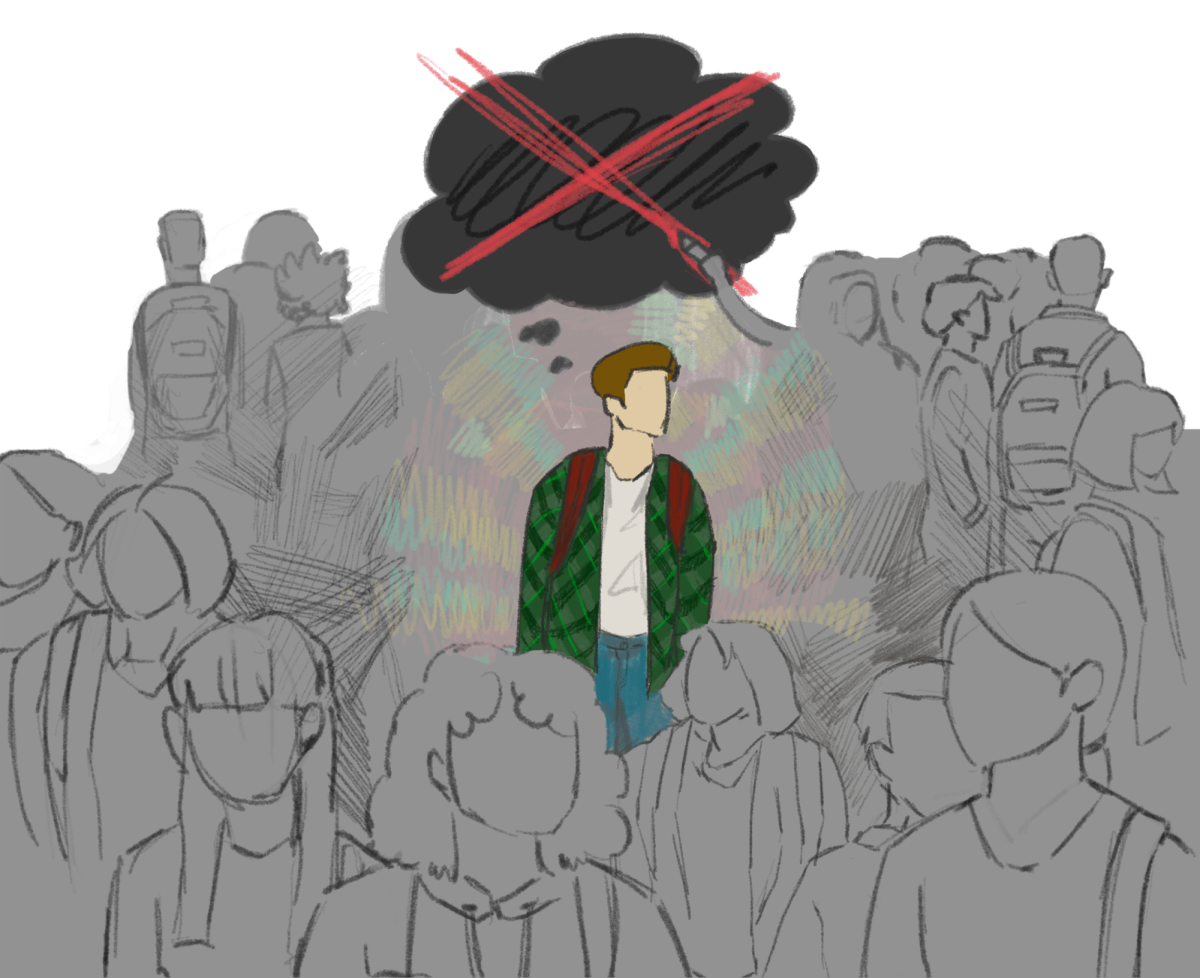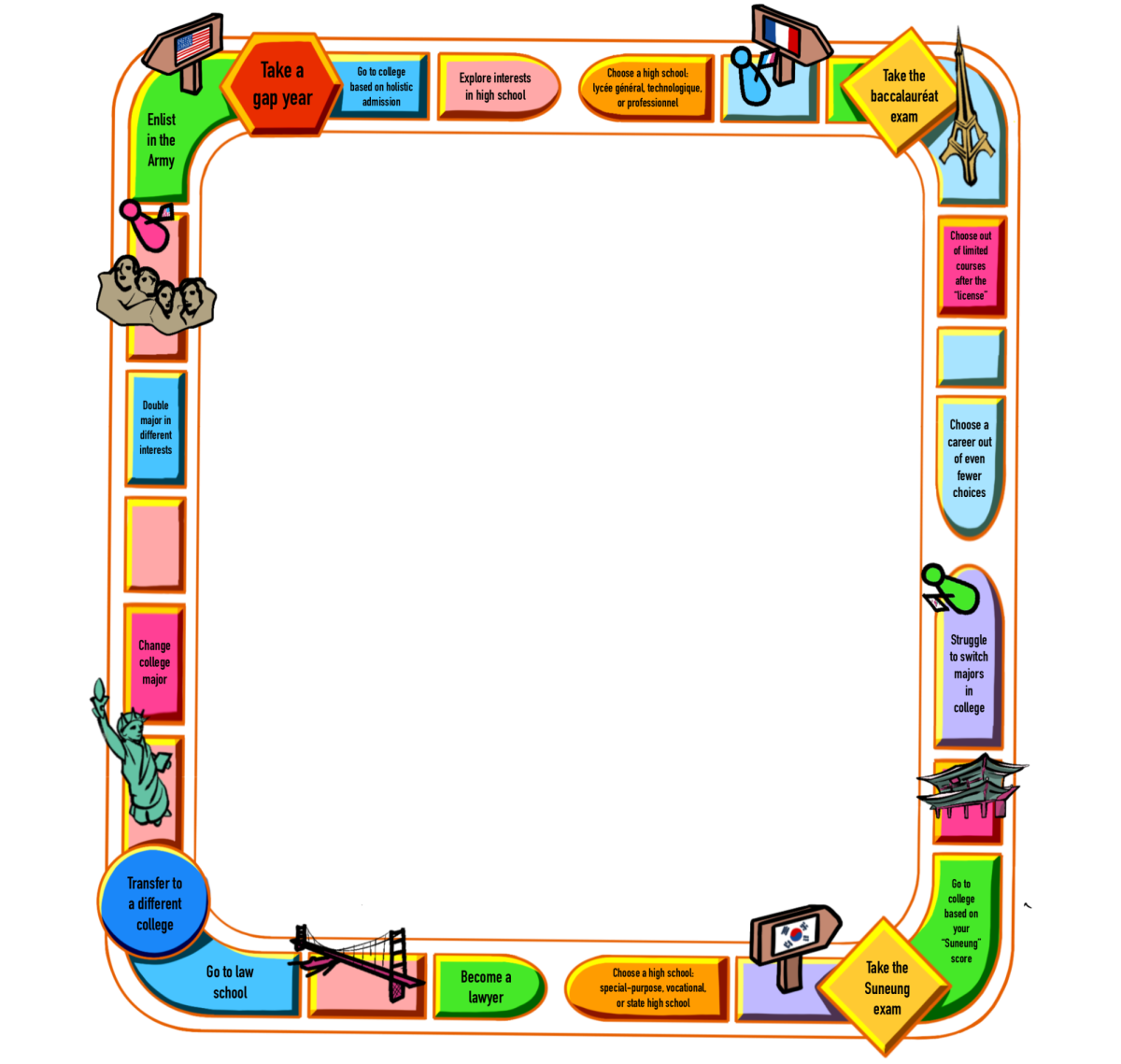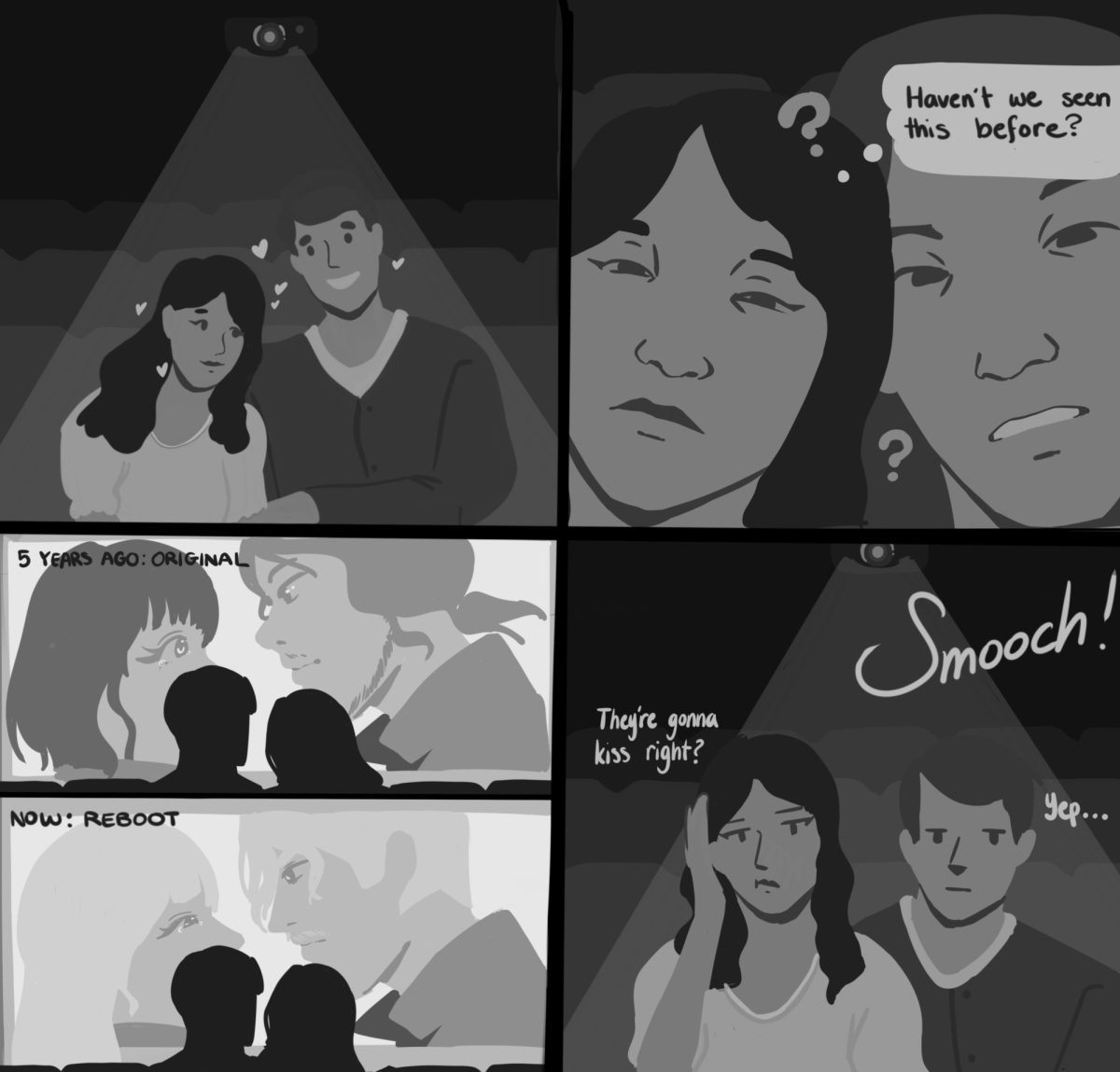Written by Anyi Cheng
There is just something that screams “science” about living in a place called Silicon Valley. Stationed in a city only a few miles away from big-brand tech companies like Oracle, Tesla and Apple, it comes as no surprise that Gunn is inordinately science, technology, engineering and math (STEM) -oriented. In fact, U.S. News & World Report currently ranks Gunn as the 11th best STEM school in the nation. However, what Gunn can boast of in STEM, it lacks in subjects like English and history. Our school does not offer nearly as many advanced humanities courses as it should, putting some of its students at a disadvantage.
One look through Gunn’s 2015 to 2016 course catalog is enough to see the disparity between STEM course options and humanities course options. Gunn only offers one Advanced Placement (AP) English course (AP Literature and Composition) and three AP social science courses (AP US History, AP Economics and AP Psychology) despite the numerous other AP humanities tests that exist. That is exactly half the number of AP math and science courses offered, leaving those who are not so numbers-savvy feeling left out of the loop.
Gunn’s challenging math and science classes likely contribute to its top-notch STEM ranking; here, math and science classes even have designated “lanes” of difficulty throughout all four years of high school. Students have three different options for first-year biology alone: Biology 1, 1A and H. Course options in the humanities, on the other hand, are woefully limited. Underclassmen are especially restricted; freshman and sophomore year social studies only has one “lane,” and English classes are limited to an “Advanced” option and a “regular” college prep option. We live in a rapidly developing world of technology and innovation, but that does not mean the arts should be shunted aside.

At Gunn, we try our best to foster an encouraging and inclusive environment. Our lack of advanced-level humanities courses, however, propagates the pre-existing disadvantages against students who are not necessarily STEM-inclined.
Lessons in the humanities deliver their own set of invaluable skills. A physics or trigonometry class cannot teach students how to read and analyze as critically as can a quality literature class. People are less likely to succeed in the future without the skills obtained through studying humanities; even a petroleum engineer will need to be able to read or even publish a few papers.
Though perhaps unintentional, the bias of Gunn’s classes towards STEM-favoring causes is detrimental to the well-being of some students. The abundance of advanced science and math courses have led many students—some of whom are not looking to pursue a STEM-related career—to take more AP or honors courses than they can handle. Part of this is because they feel pressured to take a certain number of advanced courses. What exacerbates this problem is that many of the advanced courses they tack on are in subjects that hold little to no appeal to them. Students cannot reinforce the idea that they should academically pursue subjects they have genuine interest in if those subjects are not offered; the appeal of learning for the sake of learning ceases to exist when students are pressured into taking an advanced course that they have no interest in. If Gunn offered more advanced courses in the humanities, it would alleviate this dilemma by giving students more options that could cater more specifically to their wants and talents. Letting students choose the subjects they want to study will instead increase the appeal of education.
Of course, there is the ever-persistent worry that the addition of more advanced courses would lead to what is called “honors stacking.” At a competitive school like Gunn, it is inevitable that many students will feel obligated to take as many tough classes as they can. Parents and teachers alike fret that if the school offered even more AP and honors classes, many students would blindly try to take them all. Even so, our current situation is hardly fair and already leads to unnecessary stress.
A better balance between advanced classes in different fields would at least allow students to challenge themselves and focus on the subjects they personally want to focus on. We are not trying to manufacture scientists and mathematicians at Gunn; we are trying to let students explore their interests and naturally develop their academic abilities. Not offering enough choice does not help that mission. College Board already offers AP tests for Language and Composition, Government, Comparative Government, European History, World History and Human Geography—all classes not currently offered at Gunn. Adding such classes and giving underclassmen the option to take more challenging courses in social studies and English could open new doors, alleviate student stress and highlight the very core values we champion: diversity, inclusion and a well-rounded education. Let us choose our own education and let us follow our own interests; let us not leave out those who would rather write lines of verse than lines of code.












Stem Courses • Dec 22, 2021 at 5:50 pm
Thanks for providing great informative and looking beautiful blog. Keep it up
stem courses • Oct 5, 2021 at 10:43 pm
I never read anything like this before. It’s content is valuable to me. Excellent piece!
stem courses • Sep 24, 2021 at 11:00 pm
The blog is well-written and useful. I’m hoping you’ll start posting more posts soon. Continue to share!
stem courses • Aug 30, 2021 at 12:35 am
I strongly agree, thank you for sharing. This article is very convenient to all the readers. Great work.
chensharonblog • May 29, 2016 at 6:54 am
By the way, there is AP Art History.
Also, AP Economics is actually two different AP classes: Microeconomics and Macroeconomics.
There are already many humanities class options. Students can already fill up their schedules with the ones offered. College could provide the chance for students to go more in depth,
I think humanities teachers benefit by not having to teach to an AP test. Humanities classes are, in general, less technical, more subjective, and less universal (e.g. Newton’s Law of Universal Gravitation or the Fundamental Theorem of Calculus), and it makes less sense for teachers to have to stick to a strict AP curricula.
chensharonblog • May 28, 2016 at 5:28 am
While I was at Gunn, my friends took AP Spanish classes. There were two different types of AP Spanish classes offered. Spanish is a humanities class, no? 😉
There are also AP art classes, AP Music Theory, AP Chinese, etc. They aren’t STEM-related.